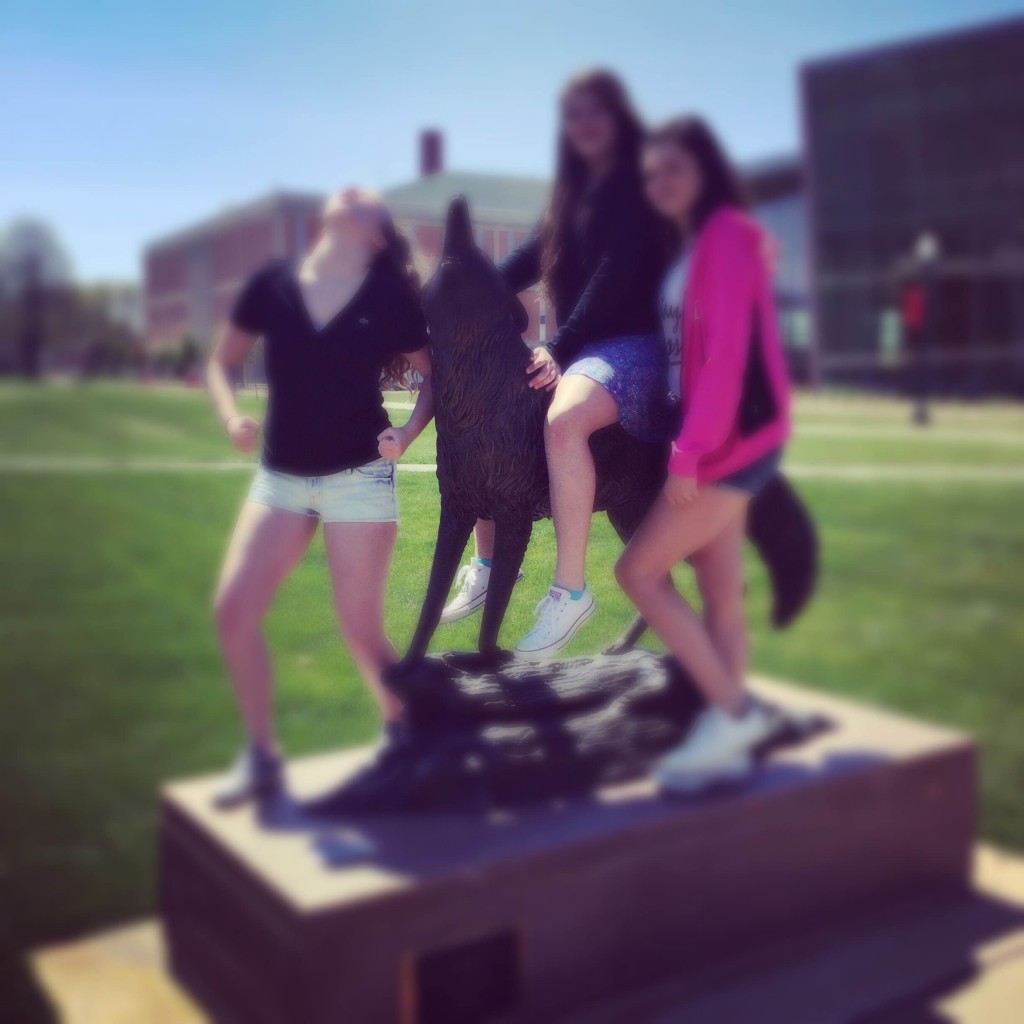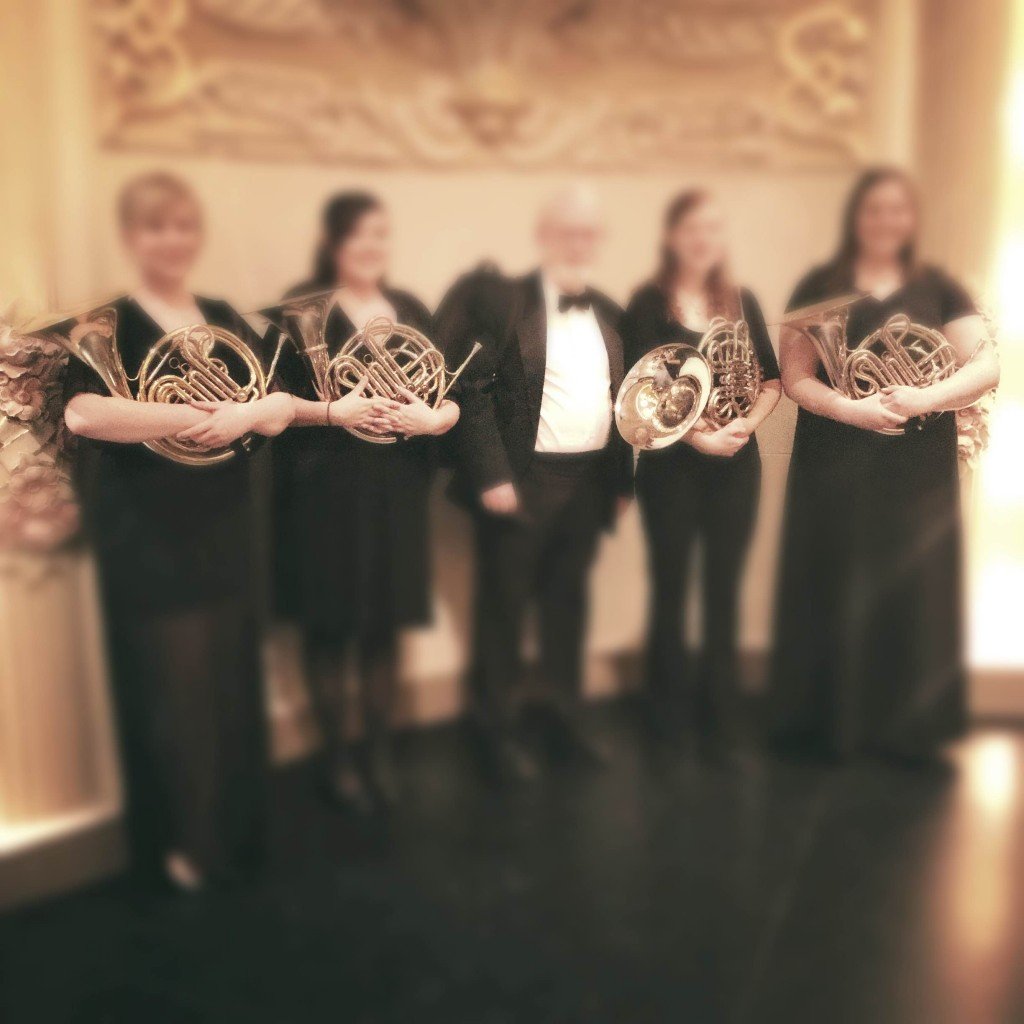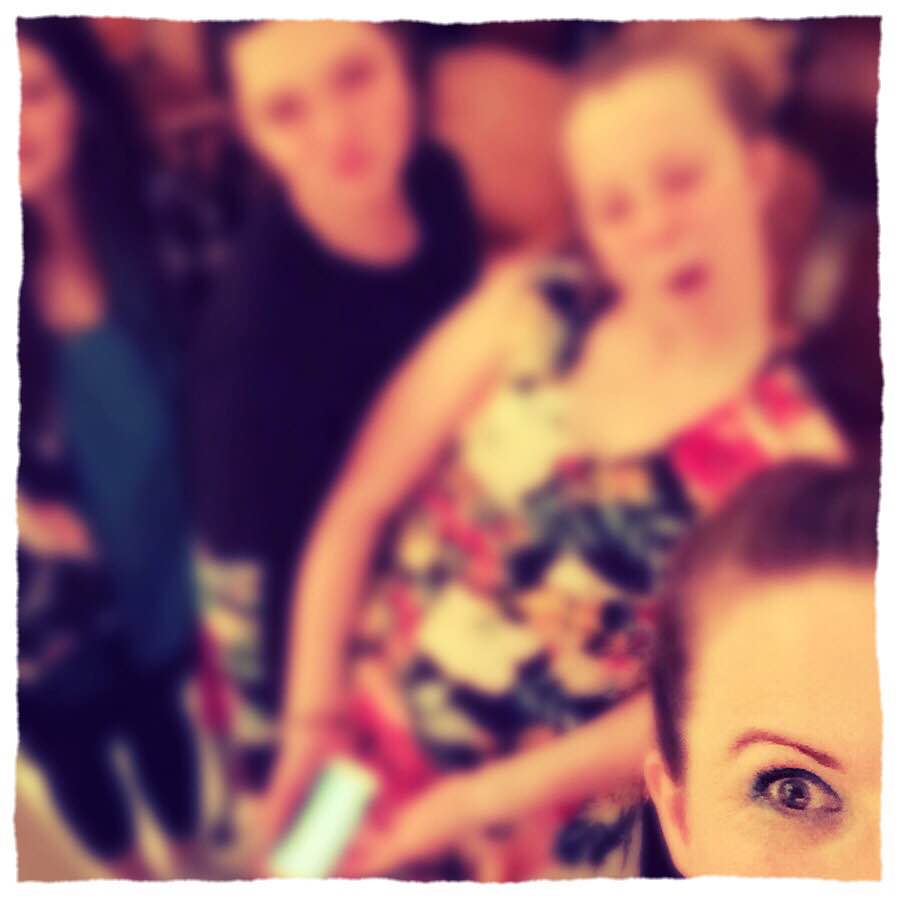The art of life is a constant readjustment to our surroundings.
~ Kakuzo Okakaura
There are all sorts of posts on social media and comments being made about how “kids these days” are becoming less social and less able to interact socially/intelligently because of smartphones and tablets and computers and drones and wifi and cyborgs … (WATCH THIS–> We are ALL cyborgs now. ~ Amber Case) but I can tell you that this weekend I took a road trip with three 12/13-year-old girls who spent the entire weekend reading, writing, researching, AND speaking with one another both through traditional language (speaking), through writing (texting, messaging) and through visuals (Instagramming, SnapChatting). They type; they talk; they make videos; they share images; they giggle; they consume viral content; they CREATE content; they experiment; and they are just like I was when I was 12, except that they have modern technology–(just like I had modern technology when I was 12. It just happens to be 26-year-old technology at this point in history).

Here is one of the many non-digital activity the girls participated in this weekend.
I understand why people see it this way. There are people (kids and adults) who over-use the technology that is so readily available to us. There are people who rarely see sunshine, or have hunched backs from constantly huddling over screens. There are people who have taken waaaay too many pictures of themselves (myself included). But, I do not believe for a second that modern technology hinders communication. Social media is a form of literacy. If you don’t learn it, you will become, in a way, illiterate. Refusal to learn is refusal to live life to its full potential.
The girls spent a lot of time using their screened devices. I am the mean mother who still hasn’t purchased a smartphone (nor a stupid phone) for my daughter, but she has an iPad from school and her friend has two smartphones, so she let my daughter borrow the smartphone she no longer uses, as a wifi-ready device for the weekend. There were several remarkable things I’d like to note about what happened our trip.
On the way to South Dakota, the girls decided that they wondered what it would be like to time-lapse themselves for the entire way there. One of the girls time-lapsed herself sleeping the other night and that idea spurred this idea. They set up one of the iPads and began time-lapsing the trip. Then they decided it would be pretty awesome to not only have a time-lapse of themselves, but also of the road, so they set up a second iPad. We had simultaneous time-lapsing going on. It was a rather nifty experiment.

This was part of our self-guided statue tour of the USD campus.
The next thing that happened was they did a lot of sharing through digital communication. They also talked … a lot. They would be talking while they were sending each other digital content. Color-me-impressed with how much talking occurred this weekend. (It was nearly non-stop.)
These girls are documentarians. If you wanted to create a timeline of our weekend, you could. You might be overwhelmed by the massive body of work, but you could definitely chart our activities through the girls’ pictures and posts. At the end of the trip, my daughter’s two friends told their moms to follow me on Instagram so that they could see what their weekend was like. As a mom, I would really like to be able to see that. If my child is away from me, I would find it a blessing to know what she did while she was away. (Now that my oldest daughter is away at college, this is especially true!)
Anytime the girls were unsure of something, they researched it online. The answers are there. We were able to talk about website credibility through this. We were also able to practice concert etiquette–one of the important components being–>put your phones away during the concert! When the girls started to interact in catty ways with girls who weren’t physically there, we had the opportunity to talk about how staying out of “the drama” of being a girl is really better than engaging in it. If someone baits you online, it’s best to not take the bait! We had some excellent conversations. If someone says “like for a #TBH DM” don’t hit LIKE. Don’t do it! I learned some things this weekend, but I think they did too.

We saw three separate concerts while we were at USD this weekend.
At one point during the trip, there was a “fight,” as often happens when you get three girls together for any extended period of time. After said fight and after a little parental intervention (AKA group therapy sesh), I witnessed the three girls work out a problem they were having through Snapchat. One of them sent an (intentionally) unattractive photo of herself to the other with the message, “Why can’t we be fweinds?” right before the concert started, and then they were all holding in laughs and giving each other knowing looks that conveyed “WE ARE FRIENDS” or “fwiends” if you will. Up until that point, I thought Snapchat was a good-for-nothing app that served only as a way to send inappropriate images to one another under the guise of “safe anonymity”. It still CAN be that–no doubt about it–but if we educate our children how to use such apps responsibly, then amazingly enough, even Snapchat can be useful.
In addition to all the things I mentioned above, we also saw three collegiate orchestral, concert and symphonic band concerts, went thrift store shopping, took a self-guided tour of the statues of the USD campus, went swimming, sang songs, visited the National Music Museum where we were all able to take a crack at playing the gamelan and my youngest daughter got to spend (face-to-face) time with her big sis.

We took three “groupies” as the girls called them or “us-ies” as Dave Guymon calls them (which I favor due to the connotation of “groupies” in my generational vernacular). We took one at every concert.
So, do these devices make us less social? NO. We may socialize in different ways, but we are not less social. Are kids super-self-centered in that they take a thousand selfies per minute? YES. Have you ever heard of a generation of adolescents who have not been self-absorbed though? They may have shown their self-absorption in other ways, but kids have always been on some level (varying by individual, of course) of the belief that they are the sun and the rest of the people in their lives are the world–revolving around them. Being self-absorbed at that age is NORMAL. My friends and I used to stare at ourselves FOR HOURS … (no hyperbole here … ) in the mirror making weird faces and bursting into laughter. HOURS. Now, they just do it into a screen and possibly make a montage of the most awkward photos or a mashup or a meme. If my friends and I could’ve done the same, we would’ve.

YES: Our kids do lead digital lives, but they haven’t stopped interacting socially with one another. They just are doing it in new ways. Their kids will do it in ways currently unimagined 20 years from now.
Balance. Of course, we need balance in everything we do–not just in digital VS. face-to-face interactions, and technology vs. nature–but in work vs. play, health vs. indulgence, physical vs. mental activity, fun vs. serious, and so on. Technology changes communication, but in my opinion, communication is easier today than it has ever been. Communication is more creative today than it ever has been. And kids are the same as they ever were; they just have new ways of expressing themselves.
In times of change learners inherit the earth; while the learned find themselves beautifully equipped to deal with a world that no longer exists.
~ Eric Hoffer






